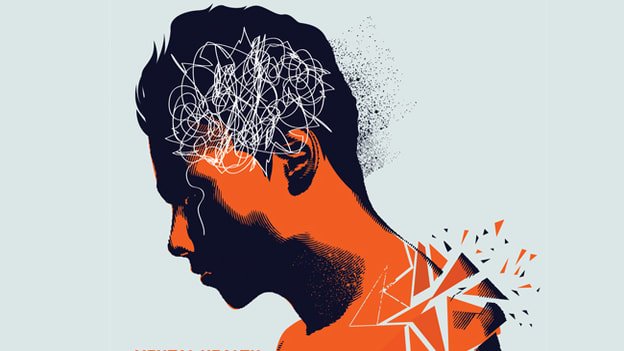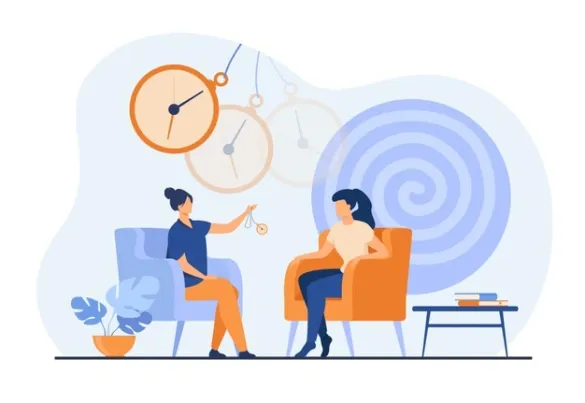7 Brutal Truths About Depression That No One Talks About
Depression is often misunderstood. It’s not just sadness, laziness, or a bad mood—it’s a complex mental health disorder that can affect every aspect of life. While society has come a long way in recognizing mental health struggles, there are still harsh realities about depression that often go unspoken.
Many people assume that depression is simply a case of feeling down or lacking motivation, but the truth is much deeper. It can seep into a person’s daily life, making even the simplest tasks feel insurmountable. It doesn’t always stem from a traumatic experience or a major life event; sometimes, it emerges out of nowhere, leaving the individual confused and hopeless. Even with the increasing awareness around mental health, the stigma attached to depression can make it hard for people to open up about their struggles. The more we talk about it, the more we can break these misconceptions and foster a society where those suffering feel understood and supported.
What is Depression?
Depression is a serious mental illness that affects the way a person thinks, feels, and behaves. It goes beyond simply feeling sad or reacting to the frustrations in life. Depression is more a chronic condition that can interfere with one’s daily routine, interactions with others, and general well-being. It can be quite pervasive and impact emotional, physical, and cognitive functions. The individual who is experiencing depression often has difficulty in communicating his feelings as the condition tends to create overwhelming feelings of hopelessness, emptiness, and exhaustion. Normal fluctuations in mood that everyone goes through are unlike depression, which is a condition that is often long-lasting and pervasive, thereby requiring intervention and treatment.
Increased awareness around mental health notwithstanding, depression remains one of the most misunderstood conditions. Many people believe that people with depression need to “snap out of it” or “think positively” in order to feel better. Realistically, depression is more complex. Causes of depression include biological, environmental, and psychological factors. Depression is one of the leading causes of disability in both aged and young individuals worldwide because it affects all gender groups and cultural backgrounds. Depression left untreated can lead to many serious life consequences that affect work, social, and even physical health. This is why recognition of symptoms and understanding what depression is all about help lead people toward treatment and means of dealing with the problem.

Causes of Depression:
Depression is a complex mental health disorder with multiple contributing factors. While the exact cause varies from person to person, it is often the result of a combination of biological, psychological, and environmental influences. Here are some of the key causes:
1. Genetic Factors
A family history of depression can increase an individual’s likelihood of developing the condition. Research suggests that genetics play a role in making some people more vulnerable to depressive episodes.
2. Brain Chemistry Imbalance
Neurotransmitters such as serotonin, dopamine, and norepinephrine are crucial for mood regulation. An imbalance in these brain chemicals can lead to depression, affecting emotions and motivation.
3. Hormonal Changes
Hormonal fluctuations, such as those occurring during puberty, pregnancy, postpartum periods, or menopause, can contribute to depression. Medical conditions like thyroid disorders can also trigger depressive symptoms.
4. Chronic Stress and Trauma
Long-term stress, childhood abuse, or traumatic life experiences can alter brain function and increase the risk of depression. Individuals with post-traumatic stress disorder (PTSD) are particularly vulnerable.
5. Medical Conditions and Medications
Chronic medical conditions, such as heart disease, diabetes, and autoimmune diseases, can have a relationship with depression. In addition, some drugs, like corticosteroids or hormonal therapy, may produce mood problems.
6. Drug Dependence
Overuse of alcohol or drugs causes disruption in brain chemistry resulting in depression. Substance abuse can also become an addiction cycle, accompanied by emotional suffering.
7. Lack of Social Support
Loneliness and isolation can significantly contribute to depression. Strong social connections and support systems are essential for mental well-being and emotional resilience.
Understanding the causes of depression is crucial for effective prevention and treatment. If you or someone you know is struggling, seeking professional help can make a difference.
Brutal Truths About Depression:
Depression is more than just feeling sad—it’s a complex and often invisible battle that many people struggle with daily. Despite increased awareness, there are still harsh realities about depression that remain unspoken. Understanding these truths can help break the stigma and provide deeper insight into the challenges faced by those who suffer.
Here are seven brutal truths about depression that no one talks about:
1. Depression Doesn’t Always Have a Clear Cause
One of the biggest misconceptions about depression is that it’s always triggered by a traumatic event. While life events can certainly contribute to depression, many people experience it without an obvious reason. It can stem from chemical imbalances, genetic predisposition, or even environmental factors. This lack of a clear cause can make it even more frustrating and difficult for sufferers to explain their feelings to others.
2. Happiness Doesn’t Cure Depression
A common belief is that if you do things that make you happy, depression will simply disappear. While positive experiences may bring temporary relief, depression isn’t just about feeling sad. It’s a chronic condition that requires more than just good moments to overcome. Even people who seem to have everything—loving relationships, successful careers, and exciting hobbies—can still battle severe depression.
3. Depression Can Make You Feel Numb, Not Just Sad
Many people assume that depression is just extreme sadness, but it often manifests as emotional numbness. It can strip away your ability to feel joy, excitement, or even sadness itself. This emotional void can make people feel disconnected from life and their loved ones, leading to isolation and withdrawal.
4. It Drains Your Energy—Even the Smallest Tasks Feel Impossible
Depression isn’t just a mental struggle; it physically exhausts you. Simple tasks like brushing your teeth, making a meal, or responding to messages can feel overwhelming. The lack of energy isn’t laziness—it’s a symptom of a mental health disorder that drains motivation and strength.
5. Depression Lies to You
One of the cruelest aspects of depression is how it manipulates your thoughts. It tells you that you’re worthless, that no one cares, and that things will never get better. These intrusive thoughts aren’t the truth, but they can feel overwhelmingly real, making it difficult to seek help or believe in recovery.
6. Medication and Therapy Aren’t Instant Fixes
While therapy and medication can be life-changing, they’re not overnight solutions. Finding the right treatment takes time, patience, and sometimes trial and error. Many people struggle with the side effects of medication or feel disheartened when therapy doesn’t provide immediate relief. Recovery is a journey, and setbacks are part of the process.
7. Depression Can Make You Push People Away, Even When You Need Them the Most
One of the most heartbreaking truths about depression is that it often makes people withdraw from their loved ones. Even though support is crucial, depression can convince you that you’re a burden, leading to self-isolation. Friends and family may not understand why you’re pulling away, which can create further feelings of loneliness and misunderstanding.
Treatment through benzodiazepines
Benzodiazepines can offer significant short-term benefits for individuals struggling with depression-related anxiety, agitation, or insomnia. These medications work by enhancing the effects of gamma-aminobutyric acid (GABA), a neurotransmitter that promotes relaxation and reduces excessive brain activity. As a result, benzodiazepines can provide rapid relief from severe anxiety and panic attacks, which are common coexisting symptoms in depression. They can also improve sleep quality, helping individuals who suffer from insomnia regain a more stable sleep pattern, which is crucial for emotional well-being. In certain cases, benzodiazepines are used alongside antidepressants to ease distressing symptoms while waiting for the antidepressants to take effect, as they often require weeks to show noticeable improvement. When used appropriately under medical supervision, benzodiazepines can offer immediate relief and enhance overall treatment effectiveness, improving a person’s quality of life in the short term. However, they should always be used cautiously to minimize the risks of dependence and withdrawal.

Final Thoughts
Depression is complex, brutal, and deeply misunderstood. It’s not a sign of weakness, nor is it something you can simply “snap out of.” Understanding these hidden truths can help create more awareness, compassion, and support for those struggling with depression.
If you or someone you know is experiencing depression, please reach out for professional help. You’re not alone, and things can get better with time, support, and the right resources.
Have you experienced any of these hidden truths about depression? Share your thoughts in the comments below. Let’s break the silence and support each other.

